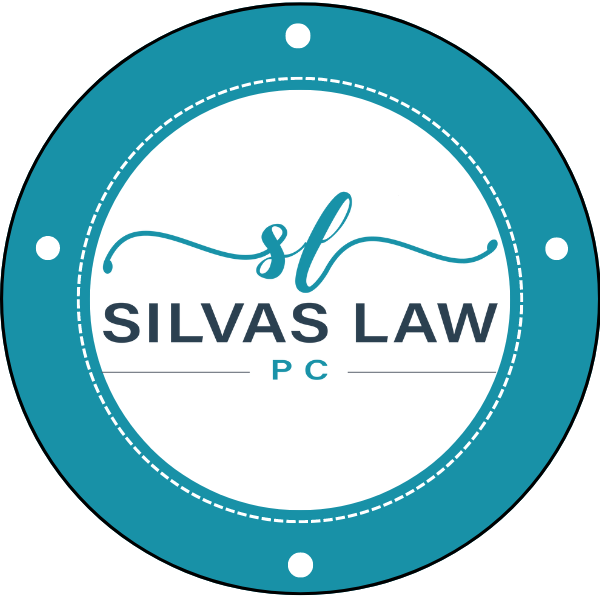Shielding Your Personal Assets: How to Create an LLC
If you’re a business owner and have been operating your business as a Sole Proprietor, you’re leaving the personal assets of your family at risk. From a creative side hustle to a tech startup, owning a business always comes with some level of financial investment and risk, whether you’re purchasing supplies, leasing office space, or hiring help. Without the proper protections in place, any debts, lawsuits, or liabilities your business incurs could be leveraged against your family’s personal assets. And with fifty-five percent of businesses not surviving more than five years, having that protection in place is essential.
Even if you have a strong business plan or an established clientele, life’s unpredictabilities can make it difficult or even impossible to take care of financial or legal obligations. Machinery needs replacing, business ebbs and flows, and contracts don’t go as agreed. And while every business needs to invest money in order to grow, those investments can reflect poorly on your personal credit report if you’re a Sole Proprietor, affecting your ability to apply for personal loans or credit cards.
By restructuring your business as a Limited Liability Company (LLC), you create a legal barrier between your business and your personal assets. This means that your personal finances, such as your home, car, and savings account, will be protected from any debts and liabilities incurred by your business. For example, if your business takes out a loan to rent a storefront, you won’t be personally liable to pay it back if the business defaults on the loan.
Wondering what the process to create an LLC looks like? Read below to learn the necessary steps, then contact us, your Personal Family Lawyer®, to help you create an LLC for your business with your state’s specific rules and regulations so that you can focus on growing your business.
Step 1: Check That the Name of Your Business is Available
If you already have a name for your business or are just getting started, choosing the right name for your business is not only important from a marketing standpoint but also from a legal one. First and foremost, it’s important that customers can recognize and remember your business name. Not only do you want to avoid your business being confused with someone else’s, most states don’t allow multiple businesses to have the same name. To make sure your name is available, search your state’s records for any businesses with a similar name as yours. You can usually find this in your state’s Department of Financial Institutions or Secretary’s Office, but every state’s record keeping is different. You’ll also want to do a national name search to make sure your name doesn’t conflict with a trademarked name in another state.
Choose Your Words Carefully
In addition to choosing an available name, most states have additional rules for which words you can and can’t use in your business name. For example, words such as “hospital,” “bank,” or “museum” are often not allowed in your business name unless your business can prove it is that specific type of business.
In most cases, name that implies your business is a part of the state or local government is also not allowed. If you operate a licensed service such as accounting, salon services, or dentistry, your licensing body may have additional naming requirements for your business. Therefore, it’s important to review your city and state's local requirements when naming a business to make sure your name doesn’t create any problems for you or delay the filing of your business organization documents.
Step 2: File Articles of Organization
Articles of Organization, (aka Certificate of Organization) are the formation documents that officially create your LLC. These documents describe the basics of your company, such as:
- Who the owners or members are
- The company’s name
- The company address
- The date the company was created
You’ll also need to name a Registered Agent in your Articles of Organization. A Registered Agent is the official point of contact who receives mail and other legal notices on behalf of your business. The Registered Agent can be yourself, or you can choose someone else to be the Registered Agent. You can change the Registered Agent and your business’s contact information at any time.
Step 3: Create Your Operating Agreement
One of the most overlooked but most important parts of creating an LLC is creating the company’s Operating Agreement. An Operating Agreement provides details on:
- How the business will be run
- What voting rights and ownership shares the company’s members have
- How company meetings will be conducted
- How a member’s share of the company will be sold or transferred when the member dies or when the company is dissolved
Having a well-crafted Operating Agreement is essential to making sure that everyone in your company is on the same page when it comes to complicated discussions or unanticipated situations. Without a clear and thorough Operating Agreement, a normal business situation could inadvertently result in a major financial setback for your business. For example, a dispute with a member of the company over the salary structure could result in the need for litigation if the process for settling disputes isn’t provided in your Operating Agreement.
Your company will also need rules for how the company is dissolved if you decide to close the business. How will shares be paid out? How will buy-outs be financed? If you pass away while owning the business, how will your loved ones inherit your share of the company? If these questions aren’t answered in your Operating Agreement, your loved ones will be stuck in court and conflict for months or even years until any issues are decided through the probate court system.
Step 4: Register for an EIN
Next, you’ll need to register for an Employer Identification Number (EIN). Similar to a Social Security Number for your business, this unique identifier is necessary for your business to perform certain functions, including banking, taxation, and employee recruitment. Registering for an EIN is a quick and free process, but like a Social Security Number, it’s important to keep your EIN secure and private.
Step 5: Apply for Licenses Required By Your State
Depending on which type of business you have and where it’s located, your state or city may require additional licenses or certifications in addition to your Articles of Organization. Required state licenses may include:
- Certification of your office’s capacity limit
- Proof of a warehouse or commercial kitchen rental
- Health code inspections
- Professional licenses
While applying for these licenses may seem like a low priority when setting up your business, it’s important to obtain all the necessary documentation as soon as possible. Failing to do so could result in avoidable fines and delays in your business operations, or worse yet, temporarily closing your business until you have the proper licenses registered with your city and state.
Step 6: Establish a Team of Trusted Advisors
Now that you know the basics of setting up an LLC structure, it’s important to build a trusted team of advisors to support your business now and in the future. While it may seem easy to set up an LLC on your own or through an online service, it can be difficult to navigate each step involved, and these services do not offer the kind of comprehensive business formation your business needs to avoid financial setbacks that can eat away at both your business and personal assets. That’s why isn’t important to work with an experienced attorney that knows the ins and outs of your state’s specific formation requirements, not a DIY online service.
By meeting with us, your Personal Family Lawyer® firm, we can create your LLC formation and make sure your business is primed for success by crafting a comprehensive Operational Agreement. As you grow your business, it’s also important to review every element of your business with trusted professionals that can make sure your company is following all applicable laws while protecting you from liabilities.
Through our LIFT Start-Up Session™ for new businesses and our LIFT Audit for existing companies, we perform a careful assessment of your business’s legal, insurance, financial, and taxation needs to make sure that your company is set up for success now and in the future, and can connect you with trusted insurance and tax professionals that we know and love.
During this session we will:
- Learn whether your company has the proper legal structure
- Review your company’s tax filing status to see where you can save on taxes
- Evaluate assets and risks to make sure you have the necessary insurance coverage
- Show you how to leverage your company’s cashflow to grow your business
Contact us today to schedule your LIFT Start-Up Session™ or LIFT Audit and learn what a Personal Family Lawyer® with a focus on family business planning can do for your LLC.

This article is a service of Tammy Silvas, Personal Family Lawyer®. We offer a complete spectrum of legal services for businesses and can help you make the wisest choices on how to deal with your business throughout life and in the event of your death. We also offer a LIFT Start-Up Session™ or a LIFT Audit for an ongoing business, which includes a review of all the legal, financial, and tax systems you need for your business. Call us today to schedule.














